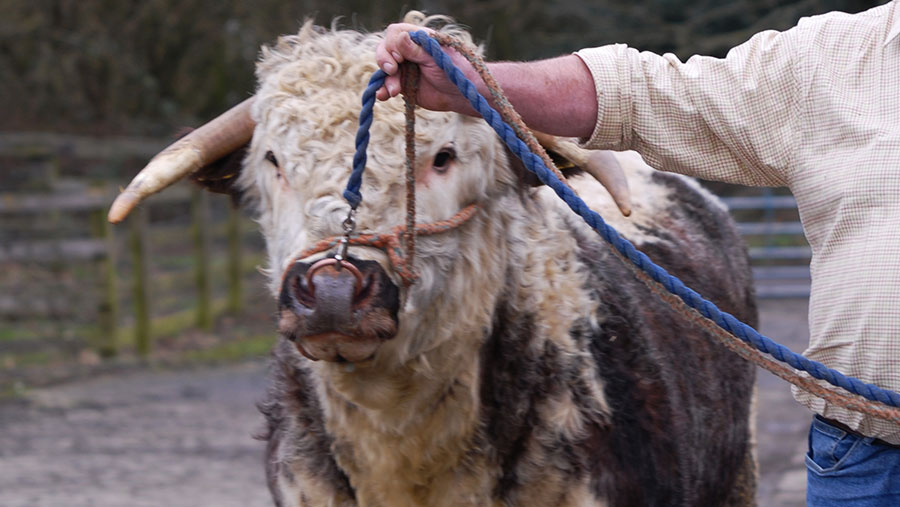Longhorn project aims to reduce bull calf euthanasia
 One of Charlie Sutcliffe's Telford Longhorms
One of Charlie Sutcliffe's Telford Longhorms An integrated beef scheme between a processor and a leading agricultural university is aiming to grow a heritage beef brand using Longhorn bulls as a dairy sire.
Newcastle University Farms and meat processor Buitelaar have launched the Longhorn Heritage Beef project at Cockle Park Research Farm, Northumberland.
Buitelaar hopes to increase supply as demand grows, possibly rolling the scheme out to other dairies.
The Longhorn-cross is hoped to be a possible solution for some farms euthanising unwanted black-and-white bull calves, while also providing another heritage beef product for a growing market.
The Longhorn is considered the oldest English beef breed and is an ideal choice for the project, said Buitelaar business development manager Hugh Pocock, who added there is increasing demand for traditional British heritage beef from overseas, as well as Asian markets.
“As the project develops, Buitelaar aims to increase supply. We are developing an exciting market to fulfil consumer demand. Suppliers and consumers are requesting high-quality beef, as well as food provenance and traceability.”
See also: Why a mixed farmer is phasing out suckler herd to finish bulls for Buitelaar
About the project
Holstein-Friesians at Newcastle University’s Nafferton Farm were inseminated to traditional Longhorn bulls in November.
Three Longhorn bulls were purchased from breeder Charlie Sutcliffe of Tetford Longhorns, Lincolnshire, and after the second insemination period, any repeat-breeding animals were served by natural service.
Sires were selected with positive estimated breeding values for calving ease and growth rates.
Calves will leave the farm aged two to six weeks to reduce labour requirements, and will be reared through the Buitelaar supply chain.
There is no additional premium attached to the scheme. Longhorn calves will get the same £32 bonus above the AHDB market price for native-sired calves currently received by other farmers supplying Buitelaar with Holstein bulls and other cross-bred calves.
Calves will be born in late August and September and all of the progeny will be finished on a grass-based system at 16-18 months, weighing about 500-550kg, from February 2022.
University farms manager Gareth Handcock said: “Another important benefit is students will receive excellent training in calf rearing from Buitelaar. We also have our own resident vets, Scott Mitchell, from Hexham, providing expertise as part of the project.”
